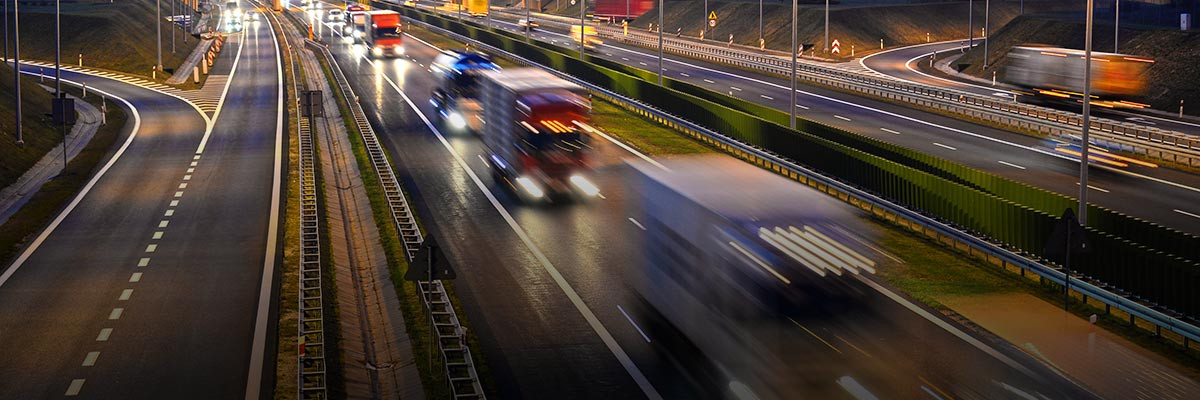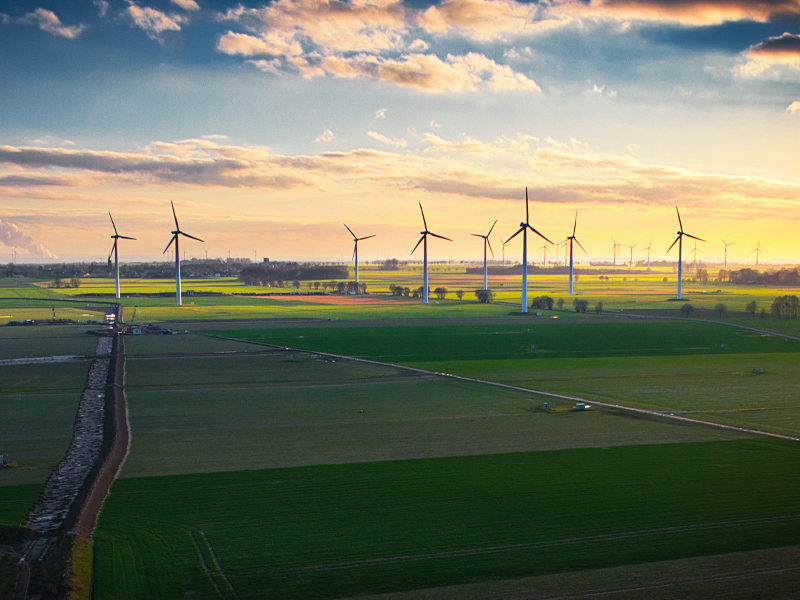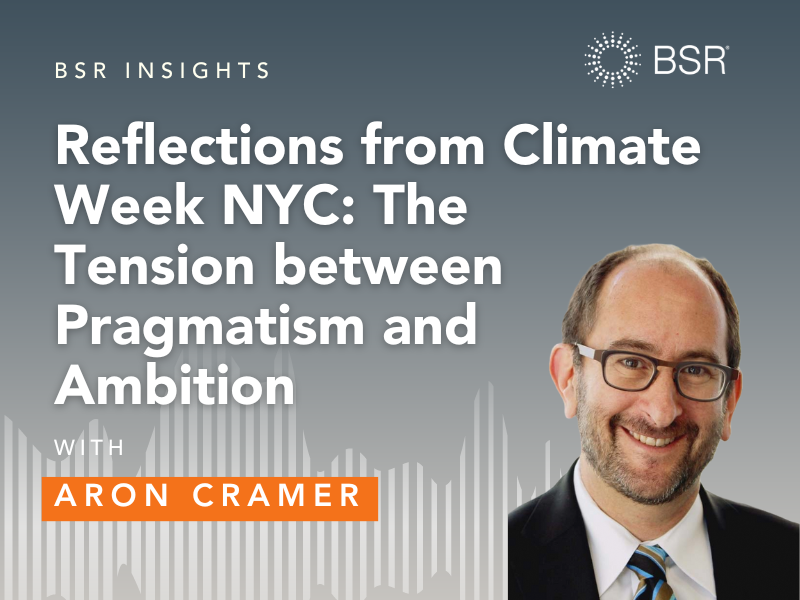
Authors
-
Beth Richmond
Former Director, Transformation, BSR
When it comes to predicting the future, even the best forecasters rarely provide the crisp detail most of us need to make confident decisions in the present. Nowhere is this more true than in sustainable fuels used in road freight.
We know we’re headed toward a low-emission future where different fuels—compressed natural gas, liquefied natural gas, biofuels, renewable diesel, and electricity—will be needed to serve different purposes, depending on unique fleet requirements. We also have a picture of the potential technological options.
Despite this directional clarity, buyers and suppliers still lack the certainty they need to make investments at scale. Buyers can’t make decisions because the technology isn’t far enough along, and it’s hard to weigh different fuel options based on sustainability because the social and environmental impacts are not always clear. Moreover, suppliers can’t make decisions because they don’t have a clear sense of the scale and shape of buyer demand.
When it comes to low-emission fuels—especially low-carbon fuels—it’s time for a new crystal ball. Enter the Sustainable Fuel Buyers’ Principles, which launch today at the Advanced Clean Transportation (ACT) Expo in Long Beach, California.
The inaugural signatories—including HP Inc.; IKEA Group; PepsiCo, Inc.; United Parcel Service, Inc. (UPS); and Wal-Mart Stores, Inc.—are committed to accelerating the transition to sustainable, low-carbon fuel and related technologies. These companies represent many of the country’s largest fleets and freight buyers.
Created by the members of BSR’s Future of Fuels and vetted through our network of 600 expert and industry stakeholders, these principles are intended to achieve three main goals: build the market for low-carbon fuels, ensure progress toward a sustainable set of fuel options, and create opportunities for partnership and collaboration.
The principles will do this by:
- Signaling the magnitude of business demand for more sustainable, low-carbon fuels for freight: Signatories join a growing group of companies that want more sustainable fuels, and BSR is planning to measure their demand annually starting this year.
- Clearly articulating criteria to increase buyers’ use of low-carbon fuels: For suppliers, these principles will clearly define what “sustainability” means to buyers. And the buyers—fleet owners and shippers—can use the Principles as a basis to develop custom criteria that fit their needs.
- Encouraging value chain engagement to boost collaboration and pilots of new fuel investments: The Principles promote pilots and partnerships focused on testing and scaling up low-carbon fuels.
While we can’t predict the precise mix of fuels and technologies, we know for sure that the future of fuels will include many different low-carbon options. And BSR’s Future of Fuels group is working to sharpen the focus by engaging partners across the value chain, sending stronger demand signals, and creating clear criteria needed for success.
We invite fuel purchasers and shippers to sign on to these principles. There is no cost to join, but we ask for companies to offer a sincere commitment to use these principles to proactively engage with their value chains around sustainable, low-carbon fuels. View the full list of signatories and the Principles themselves here.
Topics
Let’s talk about how BSR can help you to transform your business and achieve your sustainability goals.







